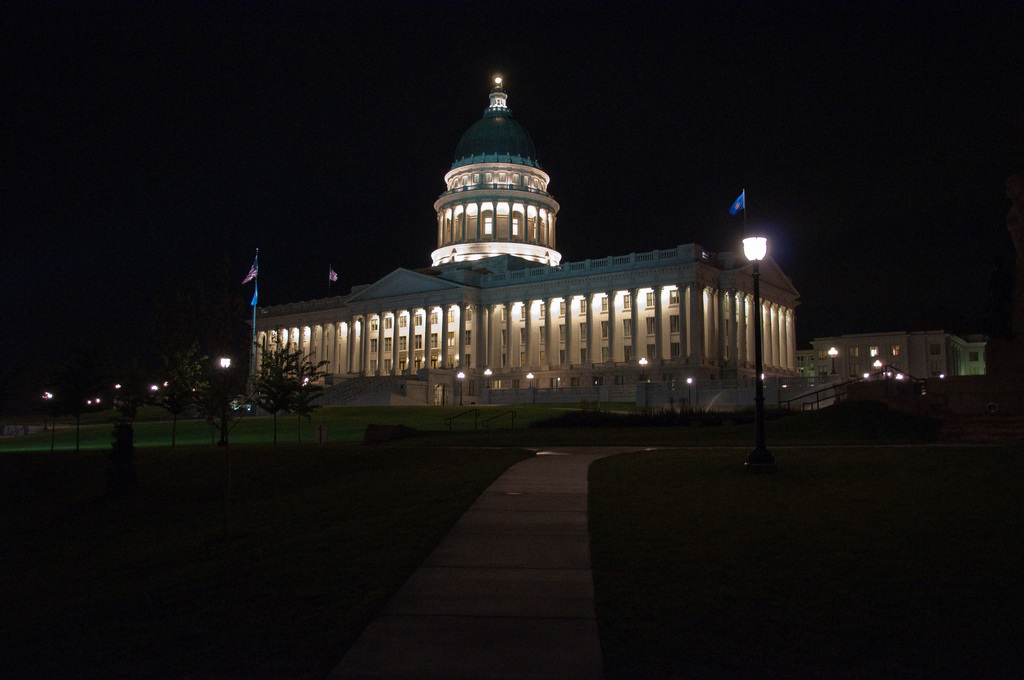| With spring busting out all over in Utah, this seems as good a time as any to lie in the grass a contemplate the shapes of clouds. Here are a few things to ponder: •Be honest, how many of you looked around at the beginning of the year and said, “I think we need 528 new laws in this state”? I doubt many of us can think of 528 of anything the world needs, let alone the state of Utah, and yet here we are with 528 new rules and new ways to get into trouble. |
| | Sure, Utah lawmakers scored some big successes with high-profile bills this year, such as the anti-discrimination law that protects people based on sexual orientation. But it’s not all good. The price of gas will go up soon because lawmakers couldn’t think of a better way to fund roads than with a gas-tax hike. Seventy-four new laws already went into effect before Tuesday, when an additional 389 came onboard. We still have 65 more taking effect this summer. Unless we find ourselves on death row facing a firing squad or drive without a seatbelt buckled within eyesight of a police officer, most of us won’t even notice the changes, which is a blessing. But just imagine how many laws we would have if the Utah Legislature were in session more than 45 days a year. •If water experts are telling us the impressive storms we had last week, including all-day rain on Saturday, did nothing to budge the drought, I think I’d rather have a sunny weekend where at least I could get some chores done. •Despite all the new laws, it’s easy to take for granted how well Utah is run. The Associated Press reports 22 states are projected to run deficits in the coming fiscal year, despite the general economic recovery and a low unemployment rate. Utah isn’t among them. The dangerous thing about states living above their means is that the next recession could destroy their ability to provide basic services. That could lead to bailouts, tax hikes and other problems that could slow down even responsible states such as ours. •Speaking of living beyond our means, the website nerdwallet.com says credit card debt in the United States is holding steady, but that’s no reason to celebrate. When the recession hit in 2008, household debt declined, then it rose again and leveled off. The web site says, “The speed with which average debt fell indicates that loans were written off, rather than paid off.” In other words, banks and other lenders simply gave up trying to collect a bunch of bad debt. Consumers, however, didn’t learn their lesson. What does this mean? Well, in 22 states, it would seem, people have a truly representative government. •Utah’s economy is booming. Among other recent accolades, Forbes.com named it the best state for business and noted its high household incomes, low energy costs and business-friendly atmosphere. So, when the folks behind moving the prison out of Draper say the site will generate $1.8 billion in economic development once the inmates are gone, it’s important to keep things in perspective. That level of economic development is likely coming to the state anyway. Whether it comes to Draper or is spread somewhere else shouldn’t matter much to the average Utahn. •Last week the Second Circuit Court ruled that the National Security Agency’s collection of data from telephone calls nationwide is illegal. If the ruling stands, what would it do to the economy of Bluffdale, the Salt Lake suburb that now houses the NSA’s largest data-gathering center? Are local politicians going to begin supporting government snooping in an effort to save local jobs? •If the landslide that gobbled one house and threatened others in North Salt Lake had happened a century ago, my guess is neighbors and lots of other folks would have worked hard to either stabilize the soil or help people rebuild somewhere. What does it say about us that the situation remains dangerous nine months later while the city, the developer and lawyers hash things out? |


 RSS Feed
RSS Feed

